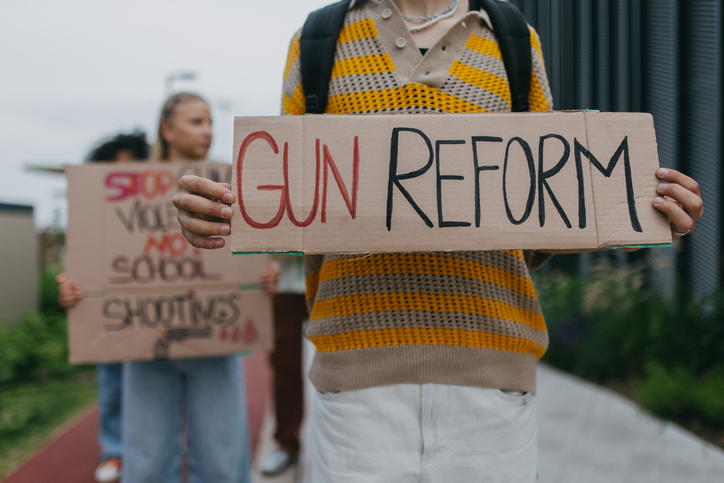
Gun violence continues to be a pressing issue in the United States, even as various topics dominate the political landscape ahead of the 2024 elections. From June 28 to October 1, 2024, at least 134 people were killed in 148 mass shootings across the country, underscoring the ongoing epidemic of gun violence. Nicole Hockley, CEO of Sandy Hook Promise, emphasizes the urgency of addressing this crisis, noting that gun violence has been the leading cause of death for adolescents under 19 for three consecutive years, according to a report from Johns Hopkins [107a4de0].
Despite the myriad of topics competing for voters' attention, a recent ABC News/Washington Post/Ipsos poll ranks gun violence as the eighth most important issue for voters. The poll reveals that 61% of Americans believe it is too easy to obtain a gun, while 58% support stricter gun-control laws. This sentiment is echoed by advocates such as Vice President Kamala Harris and Minnesota Governor Tim Walz, who are vocal proponents of gun violence prevention measures [107a4de0].
Conversely, political figures like former President Donald Trump and Ohio Senate candidate J.D. Vance oppose most gun-control measures, reflecting a significant divide in the political approach to gun violence. The poll also indicates that 88% of respondents favor preventing mentally ill individuals from purchasing firearms, and 79% support raising the minimum age for gun purchases to 21. Young voters, often referred to as the 'lockdown generation', are particularly engaged in advocating for gun violence prevention [107a4de0].
In a recent op-ed, Shana Weitzen and Maxine Slattery from Boston University called for students to join the fight against gun violence, citing the alarming statistic that guns are the leading cause of death among American children and teens. They urged the university to divest from firearm manufacturers and highlighted the importance of voting for candidates who prioritize gun reform in the upcoming elections [107a4de0].
The ongoing debate around police funding and reform also intersects with discussions on gun violence. Some experts argue for a complete overhaul of policing, while others advocate for increased funding to address the crisis of mass incarceration. This complex dialogue reflects the broader societal challenges in addressing gun violence and public safety [107a4de0].
As the election approaches, the issue of gun violence remains a critical concern for many voters, with advocates pushing for meaningful reforms to ensure safer communities across the nation [107a4de0].